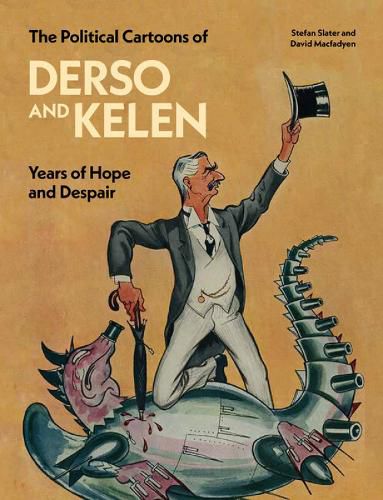Readings Newsletter
Become a Readings Member to make your shopping experience even easier.
Sign in or sign up for free!
You’re not far away from qualifying for FREE standard shipping within Australia
You’ve qualified for FREE standard shipping within Australia
The cart is loading…






Alois Derso (1888-1964) and Emery Kelen (1896-1978) were remarkable cartoonists who became internationally renowned, particularly for their depictions in the 1920s of efforts to build a better world following the establishment of the League of Nations; of the rise of fascism in the thirties; and of the world cooperation through the United Nations that emerged in the forties. Their sequence of cartoons, imbued with humour, wit, gentle satire, artistry and vision, captures the Zeitgeist of a period of history that resonates today. Surprisingly, no comprehensive account of their work and lives has been published before.
The authors analyse and discuss the extraordinary political insights revealed in the cartoons, which contribute to our understanding of those years. Drawing on original research, this overdue book delves into all aspects of Derso and Kelen's careers, including the unusual, if not unique, technical nature of their artistic collaboration and Kelen's additional gifts as a writer. It will inform the non-expert of the history of the time and the often overlooked role of cartoons as historical evidence. So memorable and informative are the images, it will also be a useful supplement to the literature on modern history, international relations and art.
$9.00 standard shipping within Australia
FREE standard shipping within Australia for orders over $100.00
Express & International shipping calculated at checkout
Alois Derso (1888-1964) and Emery Kelen (1896-1978) were remarkable cartoonists who became internationally renowned, particularly for their depictions in the 1920s of efforts to build a better world following the establishment of the League of Nations; of the rise of fascism in the thirties; and of the world cooperation through the United Nations that emerged in the forties. Their sequence of cartoons, imbued with humour, wit, gentle satire, artistry and vision, captures the Zeitgeist of a period of history that resonates today. Surprisingly, no comprehensive account of their work and lives has been published before.
The authors analyse and discuss the extraordinary political insights revealed in the cartoons, which contribute to our understanding of those years. Drawing on original research, this overdue book delves into all aspects of Derso and Kelen's careers, including the unusual, if not unique, technical nature of their artistic collaboration and Kelen's additional gifts as a writer. It will inform the non-expert of the history of the time and the often overlooked role of cartoons as historical evidence. So memorable and informative are the images, it will also be a useful supplement to the literature on modern history, international relations and art.